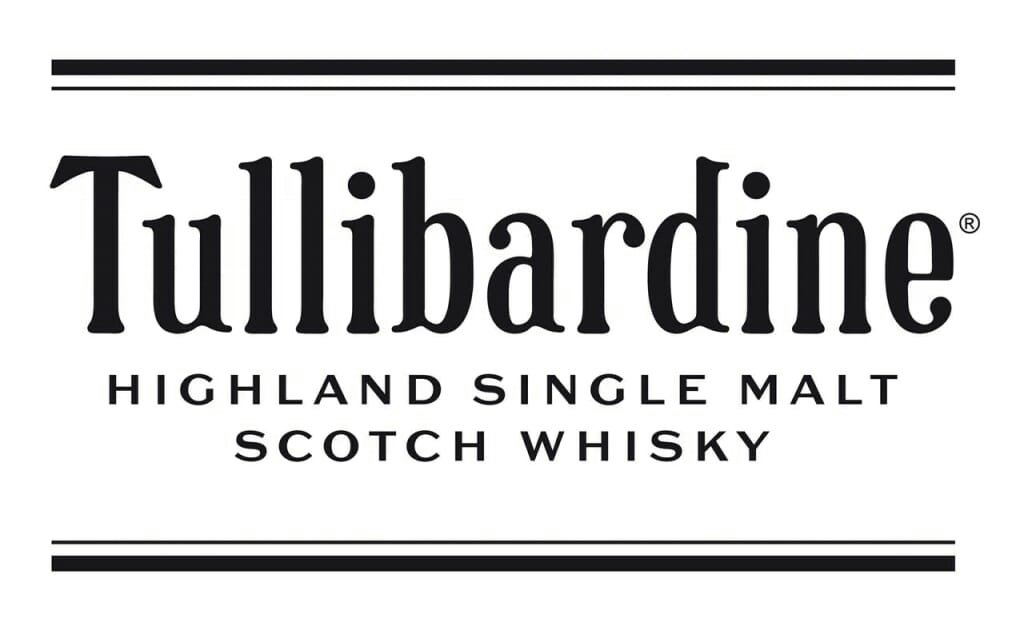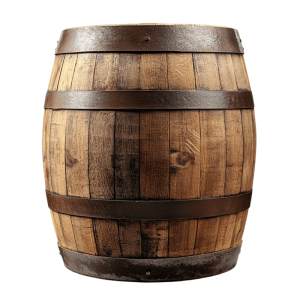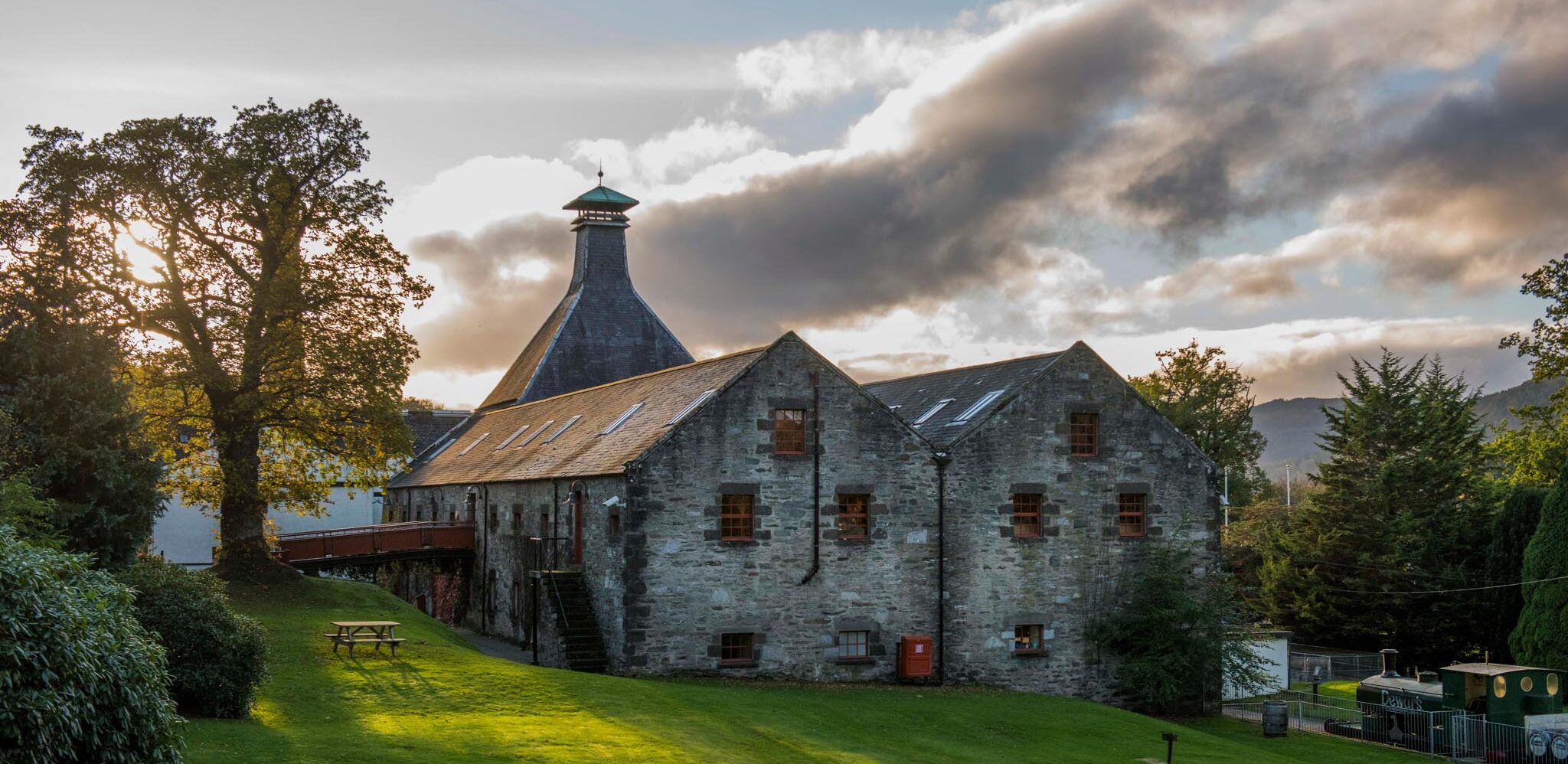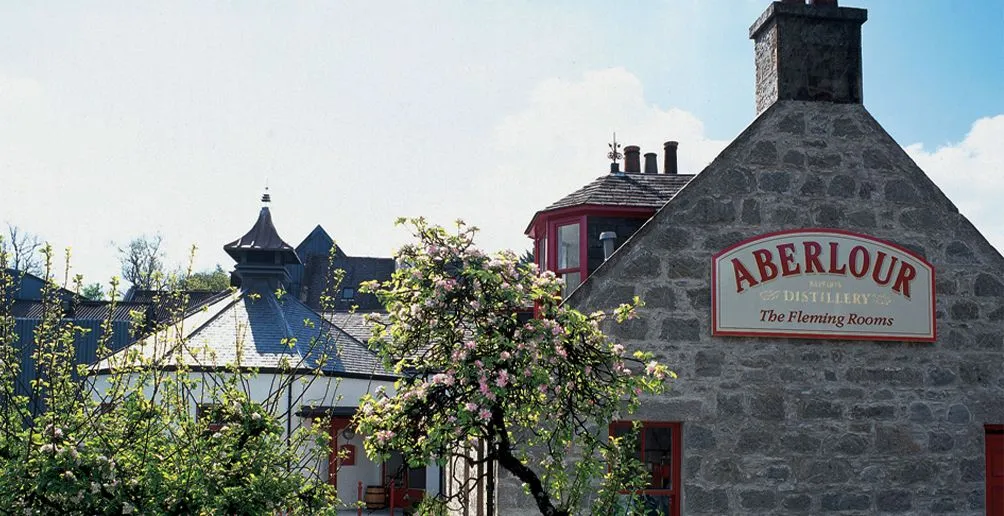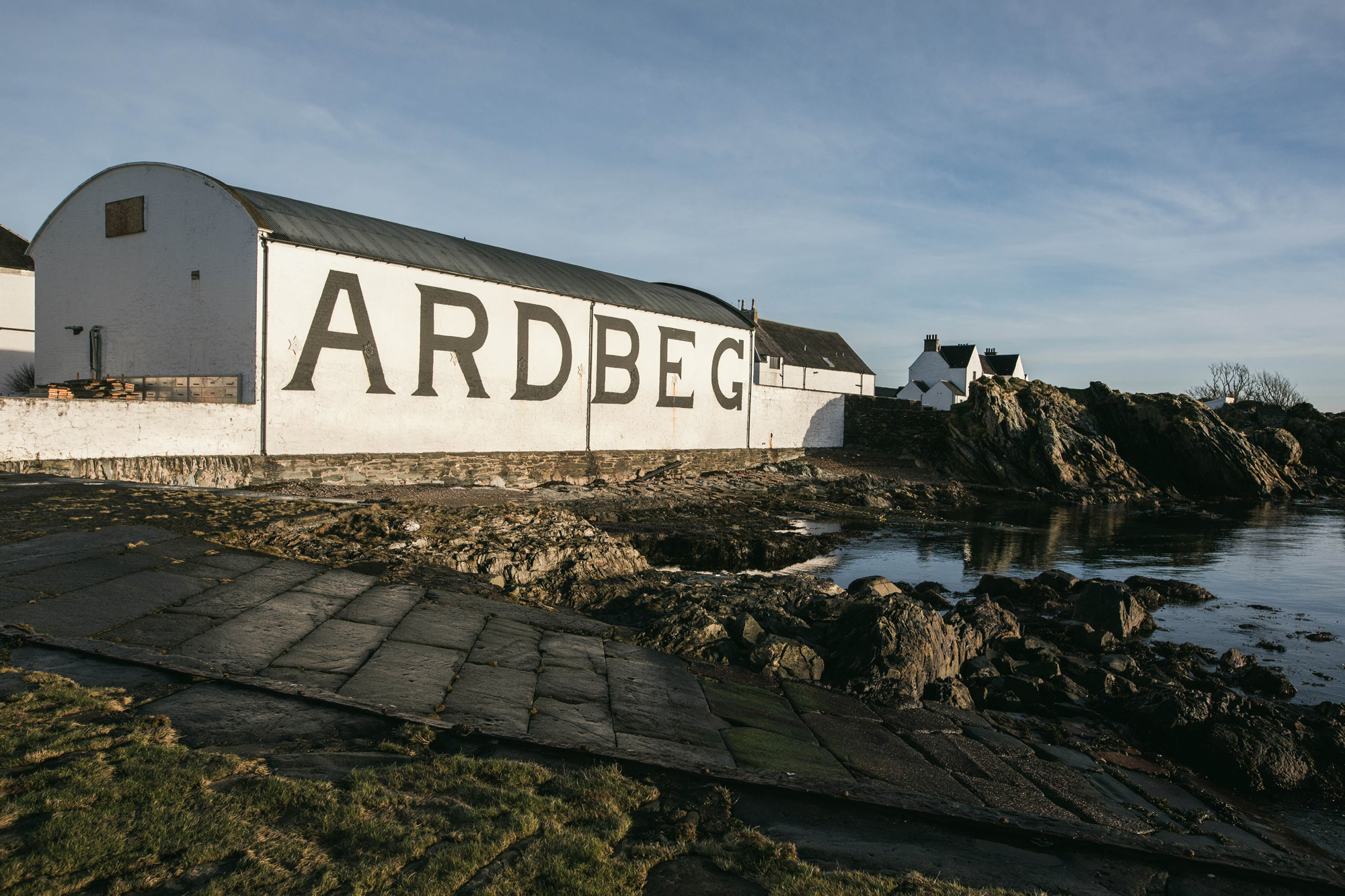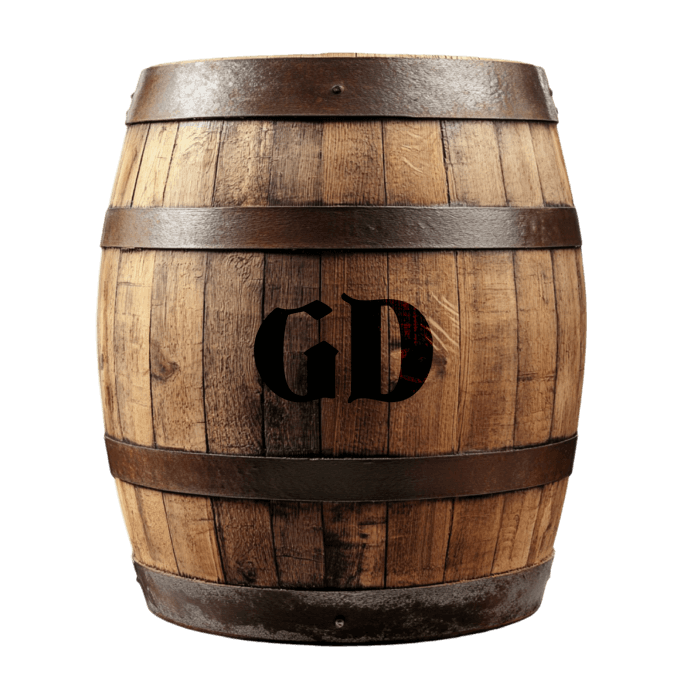
Scotch Whisky



Whisky is more than a spirit, it’s a story of craft, time and tradition.
From ancient stills to modern collections, it’s earned its place as a drink of depth and distinction.
Today, owning a whisky cask means more than enjoyment. It offers long-term value, personal legacy, and a connection to one of the world’s most respected spirits.
At Golden Dram, we provide exclusive access to casks that age with purpose and grow in potential.


The History
Whisky’s story begins over a thousand years ago, with the art of distillation travelling from China to Europe, eventually reaching Ireland and Scotland by the 12th century.
In Scotland, the first recorded reference to whisky appeared in 1494, when monk John Cor was ordered by the King to distil “aqua vitae” from malt. The name evolved from the Gaelic ‘uisce beatha’—the water of life—into what we now know as whisky.
From monastic roots to global prominence, whisky has always been more than a drink. It’s a craft passed through generations.


Types of Whisky
Whisky is a complex, aged spirit distilled from grains like barley, rye, corn, or wheat, then matured in oak casks. In Scotland, Scotch must be made from malted barley (or blends), distilled locally, and aged in oak for at least 3 years and 1 day.
Types of Whisky:
Single Malt – 100% malted barley, one distillery, rich flavors.
Blended – Mix of malt and grain; smooth and consistent.
Grain – Corn or wheat-based; light, often for blends.
Bourbon (USA) – 51%+ corn, charred oak; sweet, vanilla notes.
Rye – Mostly rye; bold and spicy.
Irish – Triple-distilled, smooth, often bourbon or sherry cask-aged.
The Cask:
Casks shape flavor and value. Common barrels:
Bourbon – Vanilla, coconut, toffee.
Sherry – Fruit, spice, nutty. Port/Wine/Rum – Red fruit, tannins, tropical notes.
Finishing in secondary casks adds complexity.
Visit the Distillery page to explore regions & distilleries.
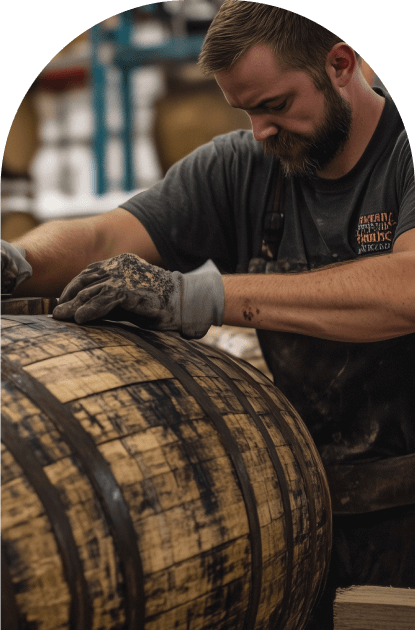

Where It's Made
Scotch whisky is made exclusively in Scotland, and to legally be called “Scotch,” it must meet specific criteria set by UK and international law.
There are five officially recognized Scotch whisky regions, each producing whiskies with distinct characteristics.
To protect quality and tradition, “Scotch whisky” is a legally protected Geographical Indication (GI)—similar to how “Champagne” must come from Champagne, France.
According to UK law and the Scotch Whisky Regulations:
- It must be distilled and matured in Scotland
- It must be aged in oak casks for at least 3 years
- It must be made from malted barley (for single malt), or grains like corn/wheat/barley (for blends)
- It must be bottled at a minimum of 40% ABV (alcohol by volume)
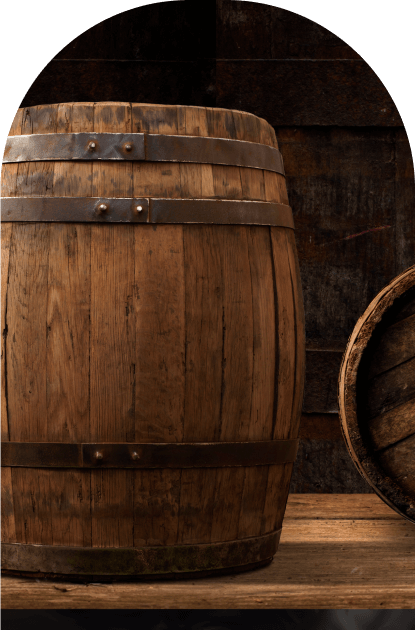

Aging Process
Scotch begins as a wash (fermented barley mash) distilled, usually twice, in copper pot stills (single malts) or continuous stills (grain whisky). The clear “new make” spirit is then aged in oak casks.
By law, Scotch must mature in Scotland for at least 3 years and 1 day.
Casks shape flavour:
Ex-bourbon (American oak) add vanilla, caramel, coconut.
Ex-sherry (European oak) bring fruit, nuts, spice.
Other casks like port, rum, or wine add unique layers.
Scotland’s cool, damp climate slows aging, allowing gradual flavour development. Whisky gains colour, absorbs flavours, softens alcohol, and loses volume (“angel’s share”).
Why whisky casks?
Matured by time. Backed by demand.
Whisky casks quietly build value with age, shaped by craft, scarcity, and heritage. As global appetite for aged whisky grows, so does the market for rare casks, making them a meaningful asset with long-term potential.
Age Builds Value
Whisky becomes more desirable with time. As it matures, the spirit deepens in flavour and rarity—making older casks not only more collectible, but often significantly more valuable. Age isn’t just tradition—it’s part of the return.
Long-Term Growth
Unlike fast-moving markets, whisky casks are built for the long game. They mature slowly, offering steady value growth that supports wealth preservation and intentional portfolio building over time.
Global Demand, Limited Supply
From private collectors to luxury brands, demand for aged whisky continues to grow. With ageing casks in limited supply, market scarcity plays in your favour—particularly for older, well-kept stock.
A Personal Legacy
Whisky casks make meaningful, tangible assets. Whether bottled, gifted or held for future generations, they offer a rare combination of value, sentiment and story—crafted to last.
Ownership with Clarity
In the UK, whisky casks are classed as ‘wasting assets’ due to natural evaporation—meaning they’re exempt from Capital Gains Tax. It’s a unique tax benefit that adds to their long-term appeal.
UK Tax Treatment
The UK may offer CGT exemption for whisky casks under the “wasting asset” rule. This does not apply if the activity is deemed trading or business-related.
Africa
South Africa: CGT applies. Nigeria, Kenya, Ghana: No clear rules; profits may be taxed as capital gains or income, depending on the nature of the investment.
Asia
Singapore & Hong Kong: No CGT unless trading. India: CGT based on holding period. Japan & China: Taxable; depends on classification as capital or income.
Other Regions
USA: Taxed as collectibles (CGT up to 28%). Canada, Australia, EU: CGT applies with no “wasting asset” exemption.
Tax Advice
We strongly recommend consulting a qualified tax advisor in your jurisdiction, as tax rules vary widely and depend on your personal circumstances.
Market Value
Recent trends in rare assets.
Scotch whisky global market value (2023)
£5.6 Billion
Tequila global market value (2023)
£11.04 Billion
Silver global demand (2023)
1.27 Billion Ounces
Gold global demand (2023-highest on record)
4,899t
The golden story
Built on craft. Forged by experience.
Like liquid gold, every step is shaped by care, precision, and time. With decades of expertise, we make owning rare assets seamless from the start.
Step 2
Buy with ease
Purchase online or book a consult for guided support.
Step 3
Transfer of ownership
The asset becomes yours – clear, direct, complete.
Step 4
Ready to exit?
We’ll keep you updated on market trends tied to your asset.

What is next?
From Cask to Bottle
Not planning to sell? You can bottle your cask instead.
Golden Dram offers a fully managed bottling experience, from cask selection to label design. Whether it’s for personal use, gifting or limited release, we’ll help you bring it to life with care and intention. It’s more than a product—it’s something lasting, crafted with you.
